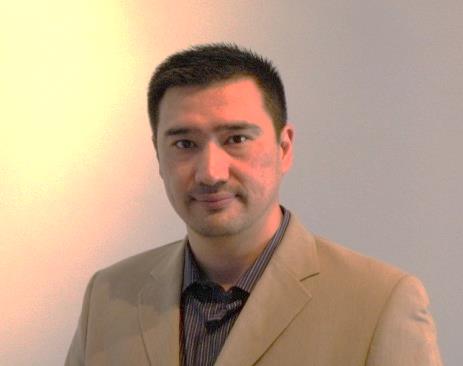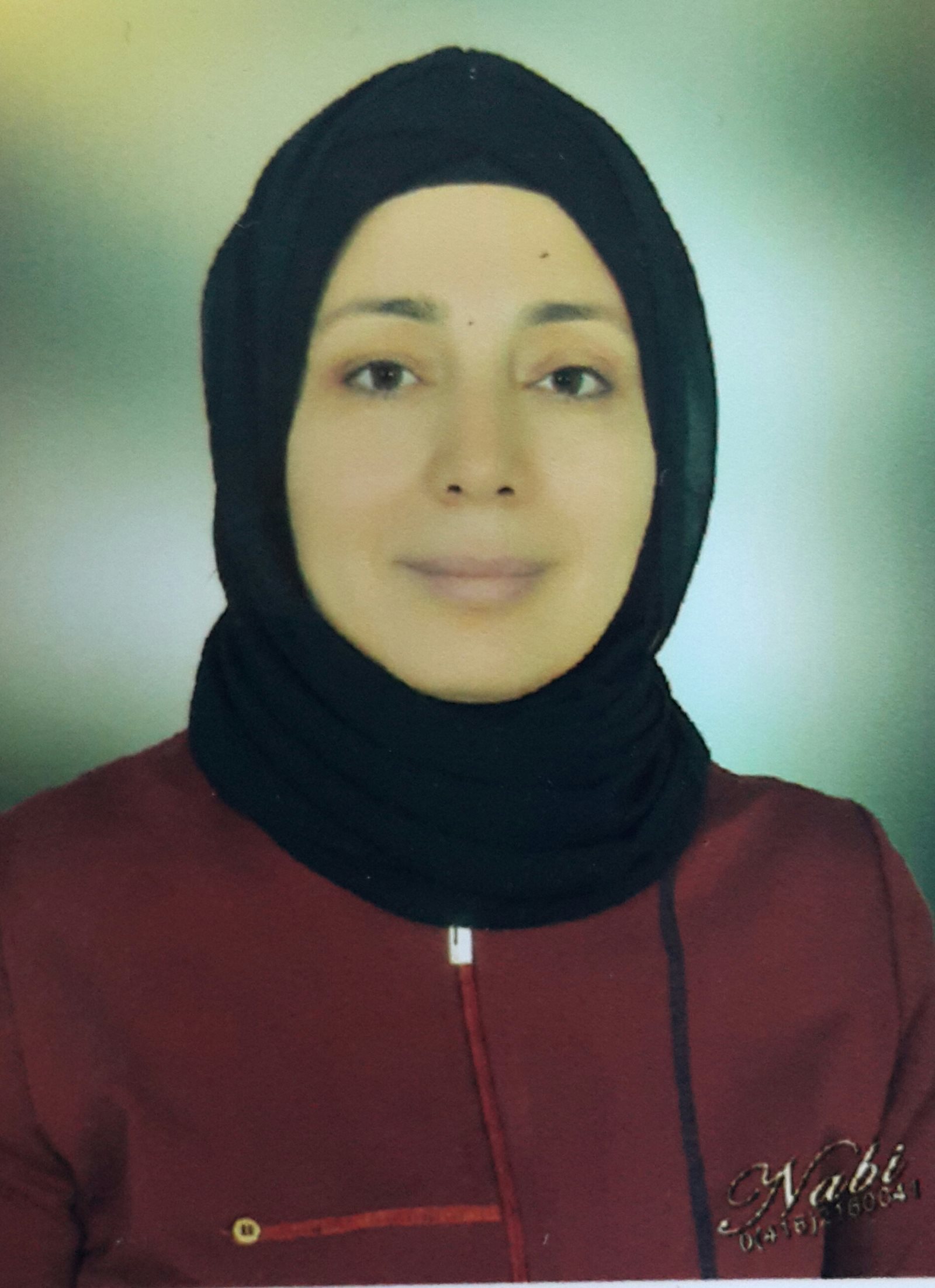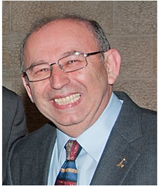Theme: Novel Therapeutic Approaches in Pharmacology and Toxicology
Pharma Forum 2020

Ladies and gentlemen, Dear scientific colleagues from Pharmacology and Toxicology,
2020 will be a very special year for Tokyo. From 24th July to 9th August, 2020 the Japanese capital will be hosting the Games of the XXXII Olympiad of the Modern Era. The town of Tokyo is very eager to organize the most innovative ever organised program. Only a few weeks later, on September 21-22, 2020 will take place the
35th World Pharmacology and Toxicology Forum in this Olympic town.
As an Organizing Committee Member for Pharma Forum Series Conferences, I cordially invite students and scientists from natural sciences and delegates from Pharma industry to join this international face-to-face meeting, and to inhale the Olympic spirit of this special location.
Let’s learn from each other how to beat the most complex diseases like cancer, Alzheimer, and others. Let’s accept one another, the academics and the industry delegates and discuss about new strategies, and finally let’s build up our worldwide network of science for a better tomorrow.
I am looking forward to meet you in Tokyo,
Sincerely yours,
Dr. Ralph Bruckner
Head of R&D, HECOSOL GmbH,
Germany
Chair Person & OCM of Pharma Forum 2020
Pharma Forum 2020:
35th World Pharmacology and Toxicology Forum scheduled during September 21-22, 2020 in Tokyo, Japan. This Conference focusses on the theme “Novel Therapeutic Approaches in Pharmacology and Toxicology”
Conference Series LLC Ltd amiably invites the pharmacologists, Toxicologists, academicians, professionals to Pharma Forum 2020. This Scientific gathering offers a unique platform to present and know the latest updates with a complete approach to diverse areas of therapeutic interest. Therapeutic studies starts right from the preclinical drug development and ends with the post marketing surveillance. These studies are supported by advanced techniques such as diagnostic imaging, toxicological studies.
Pharma Forum 2020 is organized with an added focus on the application of pharmacological principles and quantitative methods in the real human patient's population to improve the health care.
Pharmacologists have access to enough outpatients for clinical care. Their responsibilities to patients are not only restricted to the analysis of adverse drug effects, therapeutics and toxicology but also includes the study of cardiovascular risks, perioperative drug management and psychopharmacology.
35th World Pharmacology and Toxicology Forum provides an optimistic platform for exchanging ideas and helps the attendees to get updated about the advancements and innovations in Pharmacology and Toxicology. The conference regular scientific sessions will be followed by exhibition, workshops and sessions of Networking.
We hope this Congress provides an excellent opportunity to share your best practice initiative, research project, or provide continuing education as it relates current topics and advances around the industries and field of pharmaceutical and therapeutic research. Pharma Forum 2020 provides participants breakout sessions highlighting clinical projects, education, and research studies. This conference also includes interactive sessions and keynote panel discussions.
About City:
Tokyo, Japan's bustling capital blends the ultramodern and the customary, from neon-lit high rises to noteworthy sanctuaries and its world class tourist attractions renowned across the globe. The rich Meiji Shinto Shrine is known for its transcending door and encompassing woods. The Imperial Palace sits in the midst of enormous open nurseries. The city's numerous historical centres offer shows going from old style workmanship (in the Tokyo National Museum) to a recreated kabuki theatre (in the Edo-Tokyo Museum). Tokyo ranked first in the Global Economic Power Index Tokyo was ranked first in the “Best overall experience” category of Trip Advisor’s World City Survey and the city also ranked first in the following categories: “helpfulness of locals”, “nightlife”, “shopping”, “local public transportation” and “cleanliness of streets”
September has a fine matsuri season, The Owara Kaze no Bon Festival takes place on the first three days of September with hundreds dancing in procession through streets lined with old wooden buildings. One of urban Japan's most dramatic displays, The Kishiwada Danjiri Festival in Osaka and lso in mid-September, the Tsurugaoka Hachimangu Reitaisai combines live performances of yabusame (traditional horse archery) with solemn rites at an ancient shrine.
Some tourist attractions: Tokyo Sky Tree, Tokyo Metropolitan Government Building, Akihabara, Tokyo Imperial Palace, Shibuya Pedestrian Crossing, Shinjuku Gyoen National Garden, Meiji Shrine, Tokyo Disney Sea, Hamarikyu Garden, Harajuku, Kabukicho, Tsujiki Market, Tokyo National Museum, Roppongi, Takaosan.
Some Tourist Attractions
- Mount Fuji
- Imperial Tokyo
- Hiroshima Peace Memorial Park
- Historic Kyoto
- The Island Shrine of Itsukushima
- Temple City: Historic Nara
- Osaka Castle
- Chūbu-Sangaku National Park and the Japanese Alps
- The Atsuta Shrine, Nagoya
- Fukuoka Castle and the City's Ancient Festivals
- Sapporo, Hokkaido
Target Audience
- Pharmacologists
- Toxicologists
- Therapeutic Professionals
- Academicians
- Pharma professionals
- Pathology professionals
- Pharmacists
- Pharmacology researchers
- Professionals from health care industry
- PhD scholars
- Professionals from research institutes
- Experts from therapeutic research institutes
- Professionals from novel drug delivery research institutions
- Physicians
- CEO’s
- Clinical researchers
- Pharma industry
- Physicians
- Deans
- Professors
- PhD Scholars
Sessions:
- Pharmacology
- Toxicology
- Pharmacology and Drug Design
- Food and Nutritional Toxicology
- Nursing Pharmacology
- Environmental Toxicology
- Pharmacokinetics and Pharmacodynamics
- Clinical and Medical Toxicology
- Advances in Pharmacological Research
- Industrial and Occupational Toxicology
- Pharmacogenetics and Pharmacogenomics
- Molecular and Biochemical Toxicology
- Clinical Pharmacology and Receptor Therapy
- Techniques in Toxicological Pathology
- Cardiovascular Pharmacology
- Forensic toxicology
- Neuro and Psychopharmacology
- Pharmacotoxicology
- Ethno pharmacology and Ethno medicine
- Molecular Pharmacology
Track 1: Pharmacology
Pharmacology is the branch of science which deals with the medication action. A medication may be extensively characterized as any synthetic, artificial, characteristic, or endogenous atom which applies organic chemistry and in addition physiological impact on the cell, tissue, organ, or living being. Significantly it's the investigation of the associations that happen between a living body and chemicals that influence typical or abnormal organic chemistry capability and substances which are having therapeutic properties, they are concluded as pharmaceuticals.
Track 2: Toxicology
Toxicology is the scientific study of adverse effects that occur in living organisms because of chemicals. It involves perceptive and reporting symptoms, mechanisms, detection and treatment of poisonous substances, specially respect to the poisoning of humans. It includes environmental agents and chemical compounds found in nature, likewise as pharmaceutical compounds that are synthesized for medical use by humans.
Track 3: Pharmacology and Drug Design
Pharmacology is the branch of science worried with the investigation of medication action, where a medication can be extensively characterized as any man-made, characteristic, or endogenous atom which applies organic chemistry and physiological impact on the cell, tissue, organ, or living being. Drug design formerly known as rational drug design, is the creative process of discovering new medications based on the knowledge of a biological target. Drug design study explains the design of chemical molecules that are complementary in shape and charge to the endogenous target with which they interact and therefore will bind to it.
Track 4: Food and Nutritional Toxicology
Food and nutritional toxicology is the part of toxicology which deals with the various food substances which cause the toxicity to the body. The food toxicity may be a result of the pesticides and herbicides used during the process of cultivation. The nutritional toxicity may also result in the toxic response to the body. Nutritional toxicology is a speciality that combines the backgrounds and research approaches of nutrition toxicology.
Track 5: Nursing Pharmacology
Pharmacology for nurses is one in the entire foremost necessary component in nursing education. It is the sector in science that associated with management of medicine as per the disease profile of the patient. The pharmaceutical business is directly wedged by the analysis conducted with pharmaceuticals, vaccines and over-the-counter medicine. Through the world, registered nurses play an important role in administering medication to patients in a typical busy hospital environment. This duty needs a massive extent of effort on behalf of nurses to own a solid understanding of pharmacology and possibly fatal drug interactions.
Track 6: Environmental Toxicology
Environmental toxicology is the multidisciplinary branch of science with links the environment and the toxic chemicals. The reason for the environmental toxicity is enormous and they may be the pollution which is of different types and the industrial waste. The harmful toxic substances released from the industries and the industrial waste result in the environmental toxicity. Ecotoxicology is the recent emerging concept in the environmental toxicology.
Track 7: Pharmacokinetics and Pharmacodynamics
Pharmacokinetics and Pharmacodynamics parameters become necessary owing to the association between host drug concentrations, microorganism demolition, and resistance. The Pharmaceutical industries long productive strategy of inserting huge bets on a couple of molecules, promoting them heavily and turning them into blockbusters worked well for several years, but its R&D productivity has currently plummeted and also the environments changing drug biotransformation reactions. Pharmacokinetics influences decisions over the route of administration.
Track 8: Clinical and Medical Toxicology
Clinical toxicology is the branch of science which deals with the removing of the poisonous substances or harmful chemicals from the body of any organism. Clinical toxicologists are the people who are expertized in the field of detoxification. Medical toxicology is a part of the toxicology and deals with the removal of the harmful toxins from the body. The poisoning may be intentional or unintentional but the adverse effects may lead to the lethal damage to the organism. Both clinical and medical toxicologists play an important role in detoxification.
Track 9: Advances in Pharmacological Research
Nano scale drug delivery systems using liposomes and nanoparticles are raising technologies for the rational deliver of chemotherapeutical medicine within the treatment of numerous ailments. Nanoparticles present possible dangers, both medically and environmentally. The pharmaceutical trade is directly influenced by the analysis conducted with pharmaceuticals, vaccines, and over-the-counter medicine being formulated supported findings from the study of life sciences. Clinical trials are conducted to ensure that products being developed are tested on how well they work on individuals affected by the diseases or conditions they are created to treat.
Track 10: Industrial and Occupational Toxicology
Industrial and occupational toxicology is the branch of toxicology which deals with the various toxic agents and chemicals which are found in the work place and result in the toxic effects to the individual. The industrial toxicologist monitors the safety of the employers and is responsible for the safety of the employers. The industries result in releasing a number of the toxic chemicals and the heavy metals which include the lead, arsenic, and many more.
Track 11: Pharmacogenetics and Pharmacogenomics
Pharmacogenetics refers to however variation in one single gene influences the response to one drug and Pharmacogenomics refers to all of the genes (the genome) will influence responses to drugs. The general feature of those numerous lesions is that 2 nucleotides on opposite strands are joined covalently. Mutagenicity and carcinogenicity are clearly correlated. Understanding the specificity of mutagens in microorganisms leads to the direct implication of environmental mutagens in the cause of human cancers.
Track 12: Molecular and Biochemical Toxicology
Molecular and biochemical toxicology is the advancing branch of toxicology which deals at the molecular and cellular levels. Molecular techniques have provided the mechanistic information about the role of gene function in the interaction of xenobiotics and living organisms. There are a number of the advances in the field of molecular and biochemical toxicology.
Track 13: Clinical Pharmacology and Receptor Therapy
Clinical pharmacology has been practiced for hundreds of years through perceptive results of herbal remedies and early medication on humans. Since long scientific advances allowed scientists to come back with the study of physiological effects with biological effects. Receptor theory for drug effects and its discovery with clinical pharmacological medicine has extended to be a multidisciplinary field and has contributed to the findings of drug interaction, therapeutic effectiveness and safety. Drug interactions and pharmacology compatibilities embrace the study of pharmacokinetics that features the absorption, distribution, metabolism, and elimination of drug. The pharmacological effect that a medication has on the body is known as pharmacodynamics. Pharmacokinetic and pharmacodynamics parameters are utmost important because of the association between drug application, microorganism abolition, and resistance.
Track 14: Techniques in Toxicological Pathology
Toxicologic pathology concerns the effect of potentially noxious products on the body. The question being asked about the product usually involves its safety for humans or its efficacy as a medicament, but can also involve exposure to an environmental toxicant under “natural” conditions. The typical context for most toxicologic pathologists in the pharmaceutical and most academic research situations is intentionally controlled exposure of laboratory animals to xenobiotics as surrogates for humans. The animal phase of toxicological studies is very comprehensive in the pharmaceutical setting, and also often less so but nevertheless rigorous in the academic setting.
Track 15: Cardiovascular Pharmacology
Cardiovascular pharmacology deals with the study of the impact of medication upon the heart or the cardiovascular system. Cardiovascular pharmacological medicine and therapeutics can focus totally on medication utilized in the treatment of disorder, both current drug classes and those in current development. It mainly contributes to the protection profile of potential new medication and provides pharmacological knowledge that may be used for optimisation of additional compounds and also the final choice of compounds suitable for clinical development.
Track 16: Forensic toxicology
Forensic toxicology is the use of toxicology and other disciplines such as analytical chemistry, pharmacology and clinical chemistry to aid medical or legal investigation of death, poisoning, and drug use. The primary concern for forensic toxicology is not the legal outcome of the toxicological investigation or the technology utilized, but rather the obtainment and interpretation of results. A toxicological analysis can be done to various kinds of samples. Determining the substance ingested is often complicated by the body's natural processes ADME, as it is rare for a chemical to remain in its original form once in the body.
Track 17: Neuro and Psychopharmacology
Neuropharmacology is the study of how medicine have an effect on cellular operation within the system, and the neural mechanisms through that they influence the behaviour. There are two main streams of neuropharmacology behavioural and molecular. Psychopharmacology is the study of the employment of medicines in treating mental disorders. This field requires continuous study in order to keep updated with new advances. This includes understanding the principles of protein binding, half- life, drug-drug interactions and pharmacokinetics and pharmacodynamics.
Track 18: Pharmacotoxicology
The pharmacotoxicology mainly deals with prevention and control of pharmaceutically induced adverse health effects .The pharmacotoxicology is separated into two categories that is: pharmacokinetics and pharmacodynamics .The pharmaceutical products show toxicity during conditions like drug-drug interactions, bio activation of drugs and due to immune system response to the pharmaceutical product. Sometimes the drugs are toxic due to interaction with alternative targets. This mainly deals with toxic exposure to pharmaceutical drugs and agents in health care field.
Track 19: Ethno pharmacology and Ethno medicine
Ethno pharmacology is a study or comparison of the standard drugs practiced by numerous ethnic teams, and particularly by indigenous peoples. The word ethno medicine is typically used as an equivalent word for ancient drugs. Ethno medical analysis is interdisciplinary in its study of ancient medicines; it applies the ways of ethno botany and medical anthropology. Often the drug traditions in it studies are preserved only by oral tradition. Scientific ethno medical studies represent either anthropological analysis or drug discovery analysis.
Track 20: Molecular Pharmacology
Molecular pharmacology deals with understanding the molecular basis for the actions of medication and co-jointly the characteristics of interactions between drug molecules and therefore the substrates of drug action within the cell. The methods of molecular pharmacological medicine embrace precise mathematical, physical, chemical, molecular biological and each biochemical and cell biological techniques to understand how cells respond to hormones or pharmacologic agents and how chemical structure correlates with biological activity.
Conference Highlights
- Pharmacology
- Toxicology
- Pharmacology and Drug Design
- Food and Nutritional Toxicology
- Nursing Pharmacology
- Environmental Toxicology
- Pharmacokinetics and Pharmacodynamics
- Clinical and Medical Toxicology
- Advances in Pharmacological Research
- Industrial and Occupational Toxicology
- Pharmacogenetics and Pharmacogenomics
- Molecular and Biochemical Toxicology
- Clinical Pharmacology and Receptor Therapy
- Techniques in Toxicological Pathology
- Cardiovascular Pharmacology
- Forensic toxicology
- Neuro and Psychopharmacology
- Pharmacotoxicology
- Ethno pharmacology and Ethno medicine
- Molecular Pharmacology
To share your views and research, please click here to register for the Conference.
To Collaborate Scientific Professionals around the World
| Conference Date | September 21-22, 2020 | ||
| Sponsors & Exhibitors |
|
||
| Speaker Opportunity Closed | Day 1 | Day 2 | |
| Poster Opportunity Closed | Click Here to View | ||
Useful Links
Special Issues
All accepted abstracts will be published in respective Our International Journals.
- Pharmaceutical Regulatory Affairs: Open Access
- Journal of Environmental & Analytical Toxicology
- Clinical Pharmacology & Biopharmaceutics Open Access
Abstracts will be provided with Digital Object Identifier by












